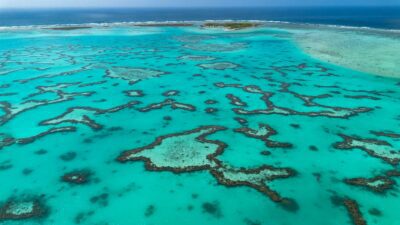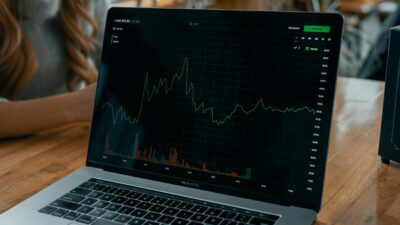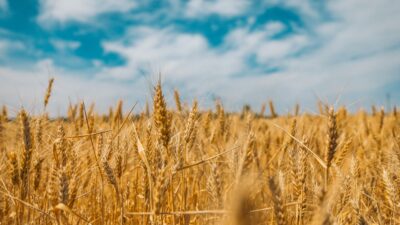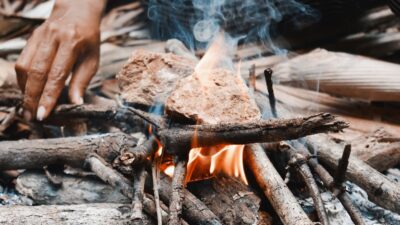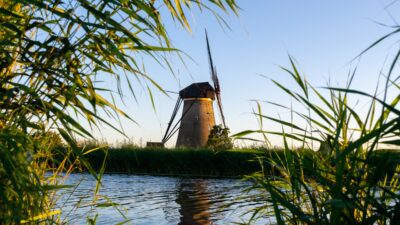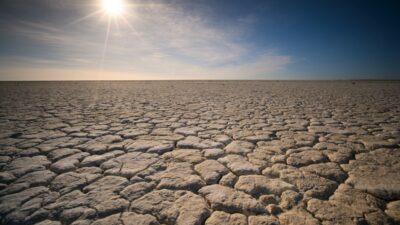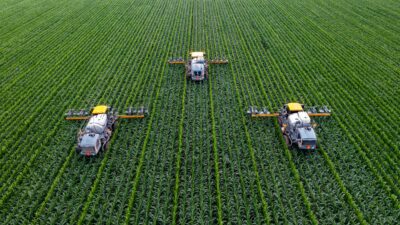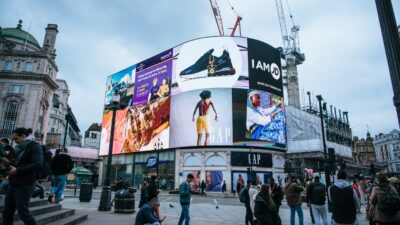Sandra Peter and Kai Riemer
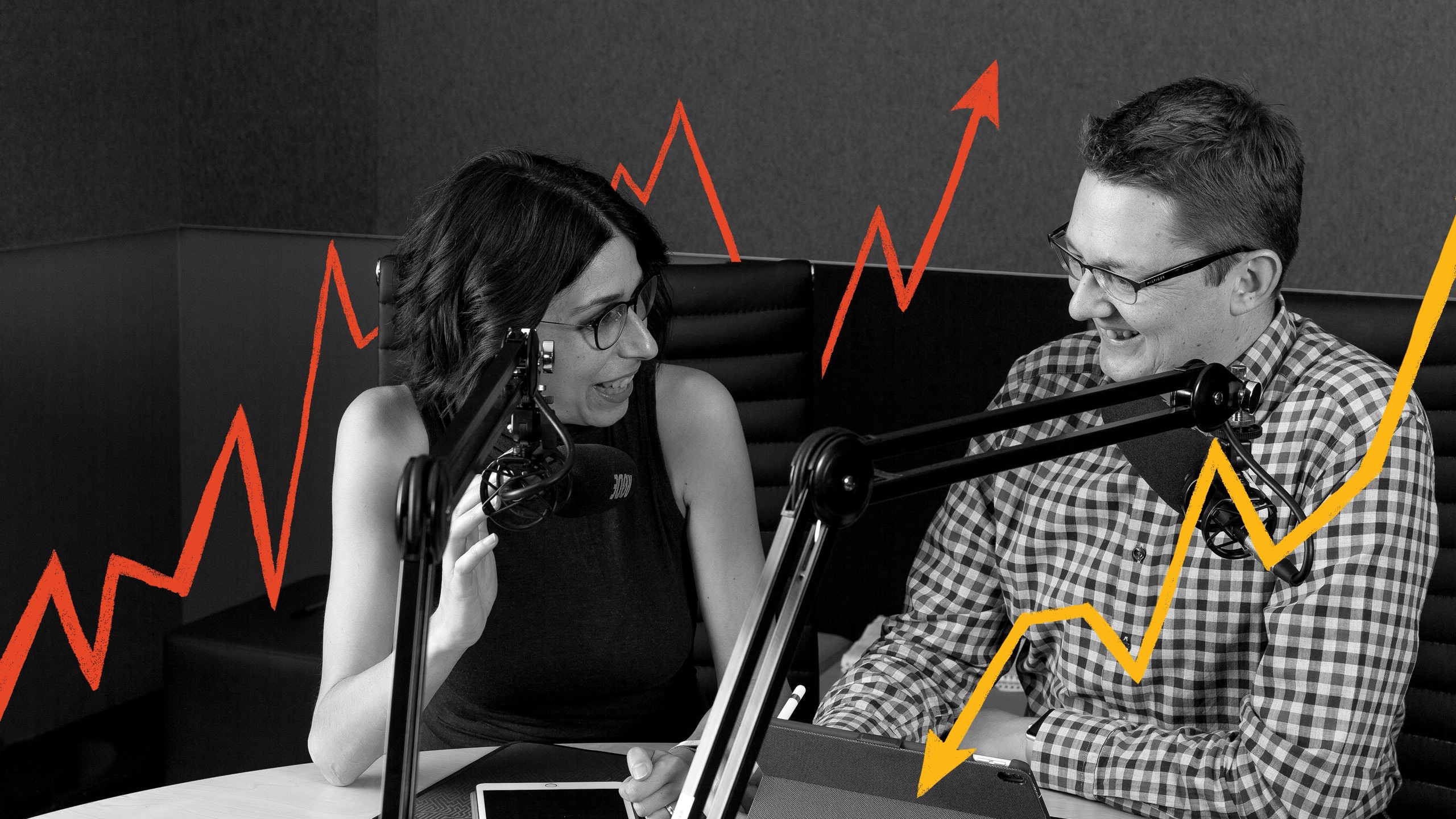
The Future, This Week 10 May 19: #biodiversity, swearing robot
This week: a million species disappear: what that means, what we can do, and a swearing robot. Sandra Peter (Sydney Business Insights) and Kai Riemer (Digital Disruption Research Group) meet once a week to put their own spin on news that is impacting the future of business in The Future, This Week.
The stories this week
0:45 – We are driving one million species to extinction
6:03 – Vox’s review of the landmark United Nations-backed report
Robot of the week
A Roomba that swears when it bumps into stuff
Other stories we bring up:
Fixing the extinction crisis means thinking bigger than individual species
6 ways to help stop climate change
One million species at risk of extinction
The rare species of corn that makes its own fertilizer
Our previous discussion on TFTW of the struggle to save the coffee industry from disaster
Our previous discussion on TFTW of how moving to dense cities fights climate change
Our previous long discussion on TFTW of the four day work week
Come see us at Vivid
Join us live at our Vivid Ideas 2019 event on June 7 at the MCA!
You can subscribe to this podcast on iTunes, Spotify, Soundcloud, Stitcher, Libsyn, YouTube or wherever you get your podcasts. You can follow us online on Flipboard, Twitter, or sbi.sydney.edu.au.
Our theme music was composed and played by Linsey Pollak.
Send us your news ideas to sbi@sydney.edu.au.
Dr Sandra Peter is the Director of Sydney Executive Plus and Associate Professor at the University of Sydney Business School. Her research and practice focuses on engaging with the future in productive ways, and the impact of emerging technologies on business and society.
Kai Riemer is Professor of Information Technology and Organisation, and Director of Sydney Executive Plus at the University of Sydney Business School. Kai's research interest is in Disruptive Technologies, Enterprise Social Media, Virtual Work, Collaborative Technologies and the Philosophy of Technology.
Share
We believe in open and honest access to knowledge. We use a Creative Commons Attribution NoDerivatives licence for our articles and podcasts, so you can republish them for free, online or in print.
Transcript
Disclaimer We'd like to advise that the following program may contain real news, occasional philosophy and ideas that may offend some listeners.
Outro This is The Future, This Week on Sydney Business Insights. I'm Sandra Peter, and I'm Kai Riemer. Every week we get together and look at the news of the week. We discuss technology, the future of business, the weird and the wonderful, and things that change the world. Okay, let's start. Let's start!
Kai Today on The Future, This Week: a million species disappear: what that means, what we can do, and a swearing robot.
Sandra I'm Sandra Peter, I'm the Director of Sydney Business Insights.
Kai I'm Kai Riemer, professor at the Business School, and leader of the Digital Disruption Research Group.
Sandra So Kai, what happened in the future this week?
Kai A lot of big tech stories happened this week. None of them really worth discussing in depth. There was a famous social network had its annual conference, F8. So Facebook is pivoting towards privacy, we've mentioned it before, we'll come back to it in the future.
Sandra There was some Google News as well, right?
Kai Some new gadgets, nothing really spectacular.
Sandra And then Uber is poised to have its IPO today.
Kai Yeah, they also have their fair share of troubles. They're being sued by Australian taxi drivers.
Sandra And its drivers are on strike in the US.
Kai There's been some Amazon news about how they have fired, and are now sued by pregnant women. How their algorithm supposedly can fire people without human intervention, though that's disputed. And this is also the week in which we learned why everyone on Game of Thrones is so grumpy, because they're being fed really bad coffee.
Sandra Yes, product placement of the week award goes to Starbucks. And we'll include the free advertising for Starbucks on Game of Thrones in the shownotes. But there was one really big story this week that we want to focus on, and remember on The Future, This Week our stories are about the future. And our story comes from the 6th of May.
Kai That's Monday. And what could be more the future, and leading news, than a little baby boy being born to a royal couple.
Sandra And you'd think that was the biggest story, because both of us were quite struck by the fact that on the ABC, on the BBC, on CNN, on every single channel, the big story of Monday the 6th of May was 'Meghan Markle's having a baby'.
Kai Okay, so Sandra, what's wrong with a little feel-good story about a little baby boy being born?
Sandra It overshadowed the arguably more important story that humans are driving one million species to extinction. It was the week of a landmark United Nations-backed report which found that Earth's ecosystems are threatened, and that we might lose up to a million species.
Kai And so this week we're going to set aside Silicon Valley just for once, and take a break from talking about tech. But we are going to talk about the future, because we're talking about the future of the planet, we're talking about the future of biodiversity.
Sandra And really we are talking about the future of business. And you'll see as we talk through this story that actually this has profound implications for business, for national economies, for trade, and really pretty much the future of everything.
Kai And so as Sandra and I prepared for this podcast, we discovered that this story is just the entrance to what is a deep and meandering rabbit hole. So everyone covered this story...
Sandra But befitting the topic we picked an article from Nature on the 6th of May, titled "Humans are driving one million species to extinction".
Kai So let's take a look at what is actually in this report.
Sandra So first the report comes from a United Nations-backed panel called the Intergovernmental Science-Policy Platform on Biodiversity and Ecosystems Services. And that's a mouthful. And according to this report, which actually has not yet been released, but rather a summary of the report has been released.
Kai A short 40 page summary of what is going to be a 1500 page report.
Sandra And this report finds that up to one million plant and animal species face extinction, many of which face extinction within decades. The report's based on a review of about 15000 scientific and government sources and about a 145 expert authors from more than 50 countries contributed to the report.
Kai And so that is noteworthy by itself, because it presents the output of what is a colossal collaborative effort by scientists around the world.
Sandra And this represents a comprehensive look at the state of the planet's biodiversity, and really the type of report that we haven't seen in more than 15 years. And for the first time, we should note here, that besides all the scientific studies that were included, as we mentioned 15000 papers, it also for the first time includes indigenous and local knowledge alongside scientific studies. Not only that, but it also integrates information, not just from the natural sciences, but also from social sciences.
Kai And so the reports mention some staggering and concerning figures. 40 percent of all amphibian species are set to disappear within the next decade or so. 33 percent of all corals, around 10 percent of all insects. And the disappearing rate of species is now 10 to about 100 times higher than over the last 10 million years. So it's a phenomenon that has clearly been accelerating at a pace that is unprecedented. There have been mass-extinction events in the past, during ice ages and the like, but never in such a short period of time, as is the case currently. And so the most staggering figure obviously is the estimate of one million species. This is not one million animals or anything, this is entire species that are set to disappear from the face of the earth.
Sandra Interestingly at this point, if someone says a million species are going to disappear, well how long would it take to replace that million species? And we actually found an article in Vox that's reported on a study from a group of European researchers from last year, titled "Mammal diversity will take millions of years to recover from the current biodiversity crisis".
Kai And the team of researchers behind the study asked a simple question: "How long would it take for evolution to replace all the mammal species that have gone extinct in the time humans have walked the earth?"
Sandra Turns out about 300 mammal species have died off since the last ice age one 130 thousand years ago. And the answer is just as surprising, it would take three to seven million years for evolution to generate 300 new species. Humans have been around for about 200000 years, so that's really a very, very short period of time, if you think about evolution and how long it takes to replace species. So if it takes seven million years to replace 300 new species, how long does it take to replace one million species?
Kai So, turns out evolution is a fairly slow process. And that makes the concern behind the report ever more staggering because as far as our collective futures goes, generations or even the future of the species, the loss in biodiversity that we experience currently is a permanent loss. There is no way these species can actually reappear in any reasonable frame of time.
Sandra But today however is not all doom and gloom. So what we're going to do is try to explore a few facets of the story. So, first we want to talk about what's in a species.
Kai We're also going to talk about why is this happening. What are the causes of biodiversity loss.
Sandra Then we're gonna ask if this is really a problem.
Kai Yeah. So we could argue okay, species are disappearing.
Sandra That's sad. Bu, you know.
Kai What does it concern me when some frog in some distant corner of the world disappears?
Sandra And then we're going to talk about what can we do about this. What's the big stuff, what's the small stuff?
Kai What are the little things that we can do to actually make things better? And we're also going to talk about how this report is related to, and ties in with climate change, but that climate change is only one of the causes of the loss in species and biodiversity.
Sandra So let's start really briefly with what's in a species, because that's a rabbit hole you ventured down into and got stuck in.
Kai Yeah, and you said 'briefly' for a reason, of course. So this is one of those things where, you know, when I advise my students writing a thesis I always say, you know just the fact that you've read something doesn't mean that you have to include it in a thesis. But please indulge me, right. This is not immediately completely relevant, but it is actually interesting to ask the question of: how do we know how many species there are in the world? And it turns out, we don't actually know precisely, or even by an order of magnitude, how many species there are because it depends on what you actually mean by a species. So estimates range from about 5 million species to 1 trillion, which, the latter one, is not really the one that this report is based on, but would be the number if you counted every different kind of microbe and bacteria that is roaming the Earth, as a different species.
Sandra Then the number of one million species disappearing would be a lot bigger, because I'm pretty sure when the Sumatran tiger goes, or the Sumatran rhino, or any of the endangered turtles, they take with them a whole host of bacteria that live in and around them. So the one million species would be way, way bigger than...
Kai #microbiome, the story we discussed last week. Right. Every mammal species is host to a whole ecosystem of different things that maybe pile of shit every pilot shit and every one of us is just full of shit. Even the question of what counts as a species is not fully settled. So one way of defining a species is when two organisms can breed, then they belong to the same species. But of course that leaves out the fact that dogs, wolves, and dingoes for example could interbreed, but they are different species. Another way of defining this is to look at the differences and similarities between lifeforms. But if we come to microbes and microorganisms, that then would blow out quite significantly. But even if we agree on a definition for a species, that doesn't actually mean that we have a good idea of how many there are in the world.
Sandra Because of course there are all the places in the world we haven't explored, depths of the sea, or really remote places in the jungle.
Kai So estimates say that there's only between 10 and 25 percent of all species have actually been named and categorized and catalogued.
Sandra But then there lies another problem, we seem to be killing them off faster than we can name them.
Kai We've just passed the tipping point in recent years, and we're now in a world where they are dying off faster than we're actually discovering them and naming them. And so just to settle this, there's quite a few interesting studies in the past where people have tried to estimate the number of species, so there was a famous study in the 1980s where a researcher sprayed the canopy of a rainforest tree, and then counted all the different beetles and insects that fell to the ground, and then extrapolated to figure out how many species of insects there would be in the world, for example. So this is actually how we come to these estimates, we are counting the variety of species in certain ecosystems, and then we're extrapolating those patterns. So in order to emerge from this rabbit hole, there's one number that I took away from this, and that is that the most agreed upon figure of how many species of mammals, insects, and other life forms there are is about 8.7 million.
Sandra So losing a million of them is quite significant. So let's have a look at why this is happening, because the instinctive answer to that is climate change. And everybody pretty much says 'oh we've all heard versions of this story before'. But this report actually goes to say that climate change is only one of the causes of this, and actually not the most significant cause of this.
Kai So Vox has climate change at number three of its five main causes.
Sandra And so does Nature. The biggest threat is...
Kai Changes in land and sea use. So, the way in which humans are remodelling the earth and reclaiming land for agriculture, for building cities.
Sandra Yep, so that is land conversions, things like deforestation.
Kai Or the changing of wetlands and marsh lands in two waterways, for example, right, and making rivers usable by ships, remodelling riverbanks and things like that which destroys ecosystems, and which come with biodiversity loss.
Sandra So besides conversion, the second biggest threat is the exploitation of plants and animals. And this is done through harvesting, through logging, through fishing...
Kai Hunting, poaching. The use of the animal kingdom as a resource, basically.
Sandra Next comes climate change, and clearly the failure of many of these species to adapt quickly enough.
Kai So, the ice melting in the Arctic reduces the habitat for the polar bears.
Sandra Or changes in the temperature of the water, leading to bleaching of coral reefs.
Kai So these being two very well-known examples, obviously. The fourth one is pollution. And here we think plastic in the oceans.
Sandra And quite recently in Australia we've seen a ban on plastic bags, and a pushback against using plastic straws, mainly to combat plastic pollution in the seas.
Kai And the last one is one that is not obvious, but has to do with the way in which human movement across the globe introduces invasive species to other ecosystems.
Sandra And in Australia that seems like quite an obvious cause, we have quite a few invasive species in Australia which we have been battling for many years, we have very strict biosecurity laws. If you come into Australia there is a whole range of animal and plant matter that you are not allowed to bring in, and we are quite strict about this.
Kai And while your luggage might be sniffed out by a sniffer dog at the baggage carousel in the airport, a lot of species enter our habitats by way of big container ships bringing in foreign species of fish, shellfish which then settle in our waterways and crowd out native species.
Sandra But indeed the report finds that this is a worldwide problem, and that the abundance of native plants and animals have fallen in most ecosystems by at least 20 percent in the last hundred years. And that is all due to invasive species.
Kai So why is that a problem, Sandra? Why should people care about loss in biodiversity, loss in species?
Sandra Here's Sir Robert Watson, the current chair of the Intergovernmental Science-Policy Platform on Biodiversity and Ecosystems Services, the committee behind this report. He also happens to be the former chair of the Intergovernmental Panel on Climate Change. And here's what he has to say.
Sir Robert Watson But it is an economic issue, a development, security, social, ethical and moral issue. Biodiversity has incredible economic value.
Sandra So there is more to this than losing cute and cuddly species, or the death of polar bears, or the loss of rhinos, tigers and leopards.
Kai So of course animals that are beautiful, well-known, that people know from the zoo, and from television, and David Edinburgh's shows, they are the big stories. But when it comes to the future implications of biodiversity, other species are much, much more important. And what we talk about here is, on the one hand a loss in knowledge and information, and on the other hand, serious implications for food security. And the first thing we need to mention is insects. There have been recent concerns in the media about insects dying all across Europe, and the really important aspect here is pollinators, it's bees and other insects that we rely on heavily in agriculture to do the job for us of pollinating our crops. With mass extinction of pollinators, agriculture faces real challenges with severe implications for global food security.
Sandra And just to drive this home, so bees for example, provide this massive, absolutely free and unaccounted for service for the food economy. And they are responsible for 75 percent of crop cultivation every year. 75 percent!
Kai So any significant loss, we will not be able to make up for in the short term, which will have real ramifications. The second topic, when it comes to food security, is genetic diversity in the kind of plants we use as crops.
Sandra We covered a story recently around lack of diversity in the genetic makeup of the coffee we drink, and will include the podcast in the shownotes, where it is quite difficult for the plant to fight off any diseases, any changes in the climate, because there is a lack of diversity in its genetic makeup. And we talked about coffee, and how little diversity there is there., but we also covered bananas and how difficult it is for the banana population to survive any blight or any disease that might attack it, which then spreads rapidly through the entire population. But then there is also the innovation aspect, so quite recently a very obscure and rare species of corn, turns out made its own fertilizer. So discoveries like that can have a massive impact on the way we protect our crops and on the use of fertilizers in agriculture.
Kai So any loss in species is always a loss in information, a loss in knowledge, and a loss in potential for innovation. More and more science and engineering relies on copying from nature. We're trying to copy from spiders in creating rope that mimics the strength of spider webs. We're relying on many species in the production of drugs, for example, and curing diseases. And so, in a world where we lose more species then we can actually discover and name, this collectively amounts to a huge loss in potential knowledge and information that will not be recoverable.
Sandra And then there are the other fairly straightforward economic implications, currently, and there is an article in National Geographic that we'll include in the shownotes, forests and oceans and other parts of nature soak up most of the global fossil fuel emissions every year. So at least 60 percent of the global fossil fuel emissions are absorbed by nature. So we need the biosphere to be able to counter the effects of global emissions. Coral reefs and mangroves on the other hand protect coastal areas, especially in places like Australia, against storms or hurricanes or other weather events. If you think of places like Europe, wetlands have traditionally protected inhabited areas from heavy rainfall and from floods by absorbing a lot of that water. So each of these ecosystems has been dramatically reduced over the last hundred years. And to me, one of the fascinating statistics there was that wetlands are down by 85 percent to what they were few hundred years ago. Coral reefs in Australia are facing a global bleaching crisis. It's all pretty grim.
Kai But to me it's also worthwhile mentioning why we actually put so much emphasis on the business and economic value. You could argue that we should protect species in biodiversity as an end in itself.
Sandra Well, yes. And that would probably be quite beautiful, so it would translate into tourism, and hence into economic value again.
Kai Yeah, so that's the point, right? In the world we live in, putting an economic value on nature, on biodiversity, seems to be, maybe not the only, but the most promising route to actually raise awareness to what this loss might mean, to what the value might mean, the depreciation that we are facing when biodiversity is lost.
Sandra Which brings us to the 'so what?'. What can we do? And arguably, one thing we could do is absolutely nothing. Enjoy the ride.
Kai And this is where we have to bring in one of the biggest threats to the climate and the environment, which is the Trump administration.
Sandra So this actually comes from a Washington Post article that reports, on the same Monday the 6th, on a meeting in Finland of the Arctic Council attended by, among others, US Secretary of State Mike Pompeo, who chose to highlight the potential advantage of global warming for global trade. The reductions in sea ice would open up new passages, and new opportunities for trade, which means that the Arctic could provide not only real estate for resource exploitation, but also open up new trade routes in the north.
Kai So where some see a colossal loss in biodiversity and habitat for the polar bear for example, the Trump administration chose to highlight that this might actually make trade a bit faster, that would cut two weeks in travel time for container ships that travel from the US to Asia, for example.
Sandra The comparison was made to the opening of the Suez Canal in 1869 which allowed ships to go faster from the Indian Ocean to the Mediterranean Sea. So now the northern route would cut the distance by an additional 5000 miles, which means that container ships would arrive two weeks faster if they were to travel by the northern route. And indeed a study by Copenhagen Business School said that at some point in the next 25 years this will be accessible.
Kai So option number one: enjoy the ride (pun intended). The option to choose to focus on the positive effects of climate change. Now, while this is an option that the US has chosen, the rest of the world cannot wait for November 2020, because most of the world seems to agree that we really need to focus on what we might call 'the big stuff', big changes in policy, and ways in which we might tackle those problems.
Sandra So option number two comes from the report. And that is 'big changes'. So, a real planetary shift from a focus on chasing just economic growth, to actually including nature as the foundation for economic development. So shifting the entire way we think about economics, to a nature-based planning. So what that would mean in very practical terms, is reforming the way we think about subsidies and incentives that are currently poured into things like energy production, or fishing, or agriculture, or forestry, and instead of driving these subsidies towards exploitation, shifting them to incentivize the protection of resources and the protection of nature. For instance, things like reforestation, or protecting entire areas or ecosystems as nature reserves.
Kai So this is not an entirely new realisation, that the way in which we talk about growth in the global economy is actually an artefact of the way in which we choose to count some things, but not others. So when we grow economic output, and we grow wealth, then we do so because we measure the output in industrial production, but we never really account for the using of the resources that cannot be replenished, and the loss in, for example, biodiversity. So, what people are arguing for really is a more rigorous way of accounting that takes account of the natural resources that we're depleting in the process.
Sandra So accounting for the economic benefit of what is called 'ecosystem services' that nature provides, so think about the bees we spoke about earlier and the pollination that they provide, and also including in the balance sheet any natural destruction that might occur as part of the cost of doing business.
Kai And that means to not only have an Environmental Impact Report, like as an afterthought, as a sort of a side effect of the activity, but bringing those cost into the activity, as a main way of accounting for human production and human engagement with the environment.
Sandra So I think we should pulse here for one second and note two things. One is that around here in the story people check out, because this is just too big a problem, and too big an issue to resolve, and really do not know what to do next.
Kai So this is a big problem because the practicalities of rolling this out and making this a reality is really difficult. And there are also ideological problems because there's different philosophies as to what should be counted, and how we should relate to this. But, there are more ideas of what can be done.
Sandra So we challenged each other when we read the story not to be all doom and gloom and completely depressed about what we could do about this, but to rather try to find some very simple things that we could actually do.
Kai So these are not rocket science, and many of these points might be well-known. But these are a few small things that we picked up from some of the articles, one in The Conversation that we will put in the shownotes. So the first one would be: work less, or work from home. So people who work from home, they commute less, they might eat more healthy, they eat more local produce rather than take out and take away. If everyone did this, that would make a big difference.
Sandra And we'll include in the show notes our entire podcast on the four day work week. The other thing you could do is move to the city, move to a densely populated area.
Kai Sounds counterintuitive, that cities are more ecological than living in the country, given the image of both. But again, we've discussed this on the podcast previously, densely populated areas are actually more ecological. For many reasons, chiefly the simple fact that you actually lose less land, you have a much smaller footprint.
Sandra And we'll include a podcast we did, more than two years ago, on how moving to dense-cities helps fight climate change.
Kai Here's another one: don't think about tax as being theft or something bad, because taxing more, and then using those taxes to incentivise beneficial behaviour, such as using public transport, or subsidies for public transport, is actually one of the remedies that are often talked about when it comes to fighting climate change, for example.
Sandra And really a simple one to end with: wash your jeans less. The label in my pair of jeans says "Care for our planet. Wash less. Wash cold. Line dry. And when you're done with them, donate them to Goodwill.
Kai And for everyone who is still depressed and needs an outlet, we have for you.
Sandra Our robot of the week.
Audio Robot of the Week
Kai So a guy by the name of Michael Reeves set about building a little Roomba vacuuming robot that screams and swears.
Sandra Not really all that time, but when it runs into an object like a piece of furniture, or a wall, or a pet, this Roomba will swear out loud. And the result is hilarious.
Kai Let's hear.
Audio SWEARING ROOMBA.
Kai Did the thing say shit?
Sandra Yeah, I think it did.
Kai Well that sums it up, right?
SandraThat's all we have time for today.
Kai See you soon.
Sandra On the Future...
Kai Next week.
Sandra This week?
Kai Yes, but next week.
Sandra On The Future, This Week. Next week. Thanks for listening.
Kai Thanks for listening.
Outro This was The Future, This Week made possible by the Sydney Business Insights Team and members of the Digital Disruption Research Group. And every week, right here with us, our sound editor Megan Wedge who makes us sound good, and keeps us honest. Our theme music was composed and played live on a set of garden hoses by Linsey Pollak. You can subscribe to this podcast on iTunes, Stitcher, Spotify, YouTube, Soundcloud or wherever you get your podcasts. You can follow us online on Flipboard, Twitter, or sbi.sydney.edu.au. If you have any news that you want us to discuss, please send them to sbi@sydney.edu.au.
Close transcript
